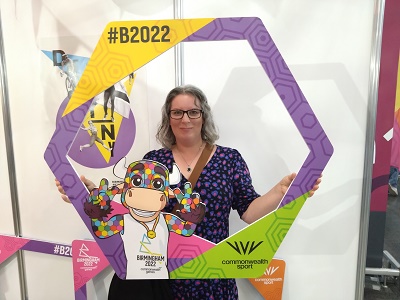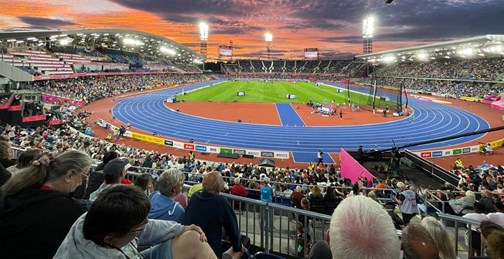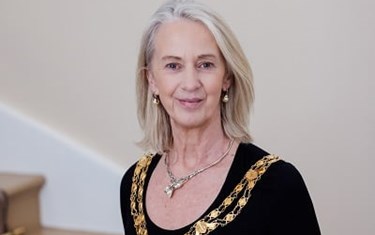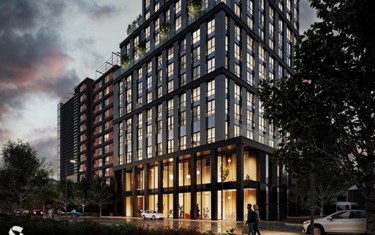Becky Farr is a proud Brummie, and Development Planning Manager at Birmingham City Council. She reflects on what the Commonwealth Games has done for Birmingham, and what planning has done for the Commonwealth Games.

The Birmingham 2022 Commonwealth Games has drawn to a close; a fantastic event which has been a celebration of sport, culture, and importantly of this wonderful city, which has long shied away from the spotlight but has now taken its chance to shine.
I’ve loved the Games experience, although I’ll admit that I only made it 10 minutes into the BBC’s coverage ahead of the opening ceremony before I cried! In fact, being overly emotional has been somewhat of a theme over the last few days – the excitement of Uganda nearly beating the Aussies in the Rugby Sevens; the sheer perfection of Joe Fraser’s gold-medal winning pommel horse routine; and the heartbreak of David Weir’s puncture in the marathon – I’ve felt it all.
I’ve also loved the positivity and buzz it’s generated, and the enthusiasm – not just for sport but for the city and region.
But now the sporting excitement is over, it’s a moment to reflect on the achievements since the day in early 2017 when I was first involved in a meeting to discuss commissioning a feasibility study for Birmingham’s bid to host a Commonwealth Games.
It seemed so far off, although we had far less time than previous host cities – just 4.5 years from when Birmingham was officially announced compared to the seven years usually available to host cities.
Planning’s contribution
What has been delivered in these last few years is – I am proud to say – nothing short of amazing. So many people have been involved, but as a planner one of the biggest things I see when I walk around Birmingham today is the myriad ways in which planning, and planners, have contributed to delivering the Games.
Some contributions are immediately visible.

That beautiful Alexander Stadium which hosted the opening ceremony and athletics events? I can’t count the number of planners involved in preparing and determining the various applications necessary to make that happen. The same with the Aquatics Centre, the athletes’ villages, redeveloped rail stations, and other facilities required to host the Games.
Some are less visible.
Birmingham’s Local Plan provided a robust strategic framework for decisions around investment in transport and venues, and unlocked CIL contributions which have supported the redevelopment of Perry Barr station.
Accelerated growth
The initial vision to accommodate athletes and officials in the new residential development at Perry Barr may have been thwarted by Covid, but it was driven by an ambition to use the Games to accelerate the growth ambitions already identified, and the scheme now being delivered in Perry Barr certainly does that!
That scheme couldn’t have been achieved without a compulsory purchase order. 27 hectares of land was assembled for new public transport and active travel infrastructure, homes (now able to be occupied sooner due to not being used for the Games), green spaces, a school, and further commercial and residential development opportunities. And the venue at Smithfield is a temporary use on what will form part of a major city centre redevelopment phased over the next 20 years.
Some contributions capitalised on the breadth and transferability of a planners’ skills: being part of the initial Games bid team, securing funding for infrastructure, masterplanning and design, strategic visioning, consultation, engagement and stakeholder management, housebuilding, contributing to a legacy plan and monitoring framework, project management, capturing social value, and – most especially – team work.
What comes next?
And some of our contributions are about what comes next. The Games has done a lot for Birmingham already: it has a new confidence which has united the development sector across the region, just as much as it has united communities; it has changed mindsets, and for Birmingham as a Local Authority, as a place to invest, and for me personally. It will continue to do so – influencing the way we plan, the scale of ambition we have, and the way the worlds see our city, for years to come.
I’ll finish, then, on looking forward. The Games has highlighted what planning and planners can do, and given us a chance to find new ways to contribute to ‘levelling up’, deliver on challenging housing targets, create healthy and resilient places, and pursue a zero-carbon future.
Specifically, planning will help deliver the strong legacy set out in our legacy masterplan, and in the delivering a bold legacy for Birmingham host city legacy plan.
The Commonwealth Games? It’s a Planning ting!


